
TYRES DESIGNED FOR HIGH LEVELS OF PERFORMANCE
THROUGHOUT THEIR LIFE

Motorists regularly ask themselves two questions about their tyres: "Am I safe with my tyres?" and "When should I change my tyres, to be sure that I am safe?"
"Performance made to last" is the illustration of MICHELIN’s commitment to ensure you a long and safe driving experience from the first to the last mile, meaning until the legal wear limit (1) (2). Which means that you change your tyres less often, saving money and help you to reduce your impact on the environment. It’s a win-win: a win for you and a win for the planet.
"Performance made to last" epitomizes MICHELIN’s innovative spirit: it is the fruit of thousands of hours of research and rigorous testing.
Our experts have conducted countless test drives in the most extreme conditions to ensure that our products' performance stays high over time for a safe and more enjoyable ride in the long run.
In other words, performance like braking, traction, grip, and handling(5) is made to last until the legal wear limit (1).



and avoid early replacement,

Tyres start to wear out as soon as they’re fitted and the performance changes over time.
With "Performance made to last", which is an integral part of MICHELIN tyres’ genetic makeup, you can maintain a short braking distance even at the legal tread wear limit. (4)
(4) External tests performed in June 2021 by TUV SUD Product Service, at Michelin’s request, between 80 and 20 km/h on MICHELIN Primacy 4+ 205/55 R16 91V and competitor tyres fitted to a VW Golf 8. See full mention in the footer.
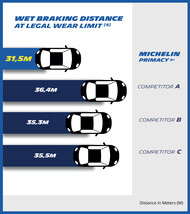
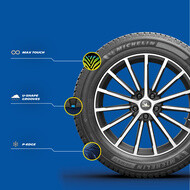
Overall, 27 technologies fuel "Performance made to last".
Here is an insight into some of the technologies behind "Performance Made to Last":
Discover some of our tyres with "Performance made to last".

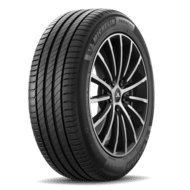
MICHELIN PRIMACY 4+, greater safety made to last(1).

Electric or hybrid vehicle
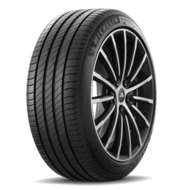
MICHELIN e·PRIMACY: eco-designed, made to last.

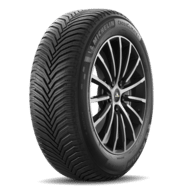
MICHELIN CROSSCLIMATE 2, expert of the all-season tyres(1).

Crossover - SUV - 4X4
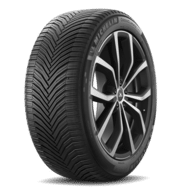
Master of the all-season tyres for SUVs(1)

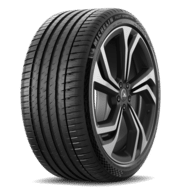
Road control for SUVs made to last

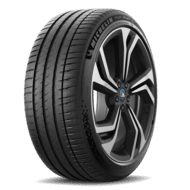
Electrified road control made to last.
At MICHELIN, we stand for a more sustainable mobility for our customers and the environment. That's why MICHELIN set out the challenges of 100% sustainable tyres by 2050.
We act in every stage of the tyre’s life, from design and production to distribution, usage, and recycling.
By avoiding early replacements with "Performance Made to Last", by reducing the consumption of energy, CO2 emissions and raw materials involved in manufacturing new tyres, we improve the tyre’s environmental footprint.

LEGAL MENTIONS
(1) Legal limit: 1,6mm, subject to regular wear of your tyres and compliance with the recommendations of the tyre and car manufacturers. If in doubt, consult a specialist. European Directive 89/459/CEE.
(2) The following tyre lines are designed to offer high level of longevity and performance that lasts: MICHELIN CrossClimate², MICHELIN CrossClimate 2 SUV, MICHELIN Primacy 4+, MICHELIN e.Primacy, MICHELIN Pilot Sport 4S, MICHELIN Pilot Sport 5, MICHELIN Pilot Sport EV, MICHELIN Pilot Sport 4 SUV, MICHELIN Alpin 6 and MICHELIN Pilot Alpin 5.
(3) "Last mile" being understood as until the minimum legal tread depth (1.6 mm in Europe). Please refer to the minimum legal tread depth in your country.
(4) Wet braking at worn state - External tests conducted by TÜV SÜD Product Service, at Michelin's request, between 80-20 kph, in June 2021, on dimension 205/55 R16 91V on VW Golf 8 (worn means when worn at machine (buffed) to the depth of Tread Wear Indicator according to European regulation: ECE R30r03f) comparing MICHELIN Primacy 4+ (31,5m) versus BRIDGESTONE TuranzaT005 (36,4m); CONTINENTAL Premium Contact 6 ( 35,3m); GOODYEAR EfficientGrip Performance 2 ( 35,5m)
Results may vary according to road and weather conditions.
(5) Braking on wet roads for summer tyres, braking and traction on snow and wet roads for all-season and winter tyres and road handling or grip on track for sport tyres.
(6) Data from the Ernst & Young report entitled “Planned obsolescence is not inevitable” (May 2017).
(7) According to internal calculations made at Ladoux (Technology Center, Clermont-Ferrand, France): technical bulletin dated September 27, 2016, on raw materials, fuel consumption and CO2 emissions linked to early replacement of passenger car tyres.